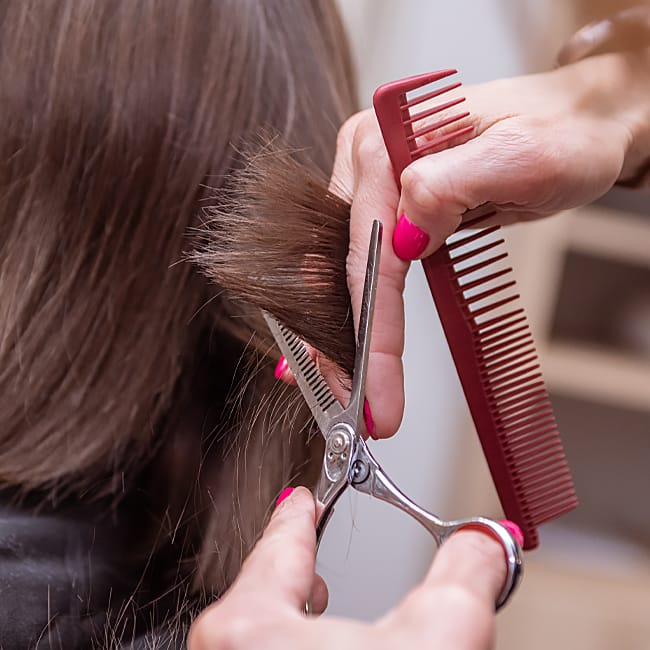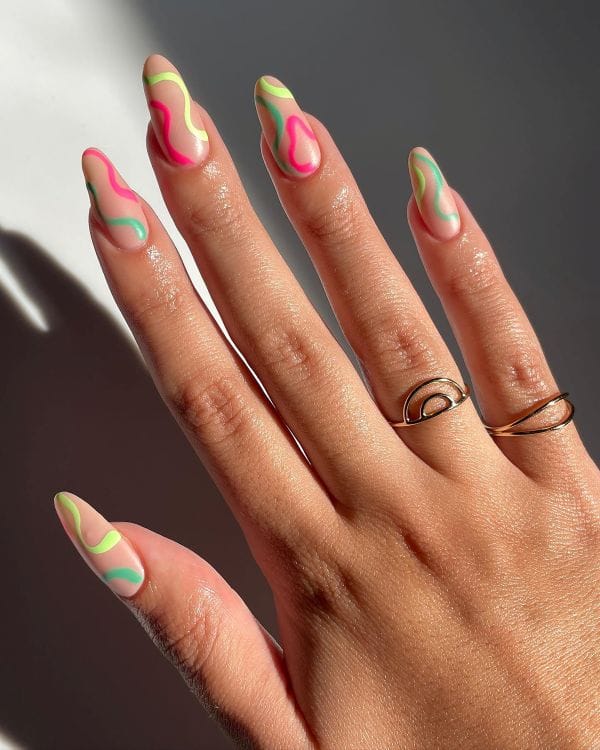One comment you may hear often about menopause (and it usually comes off as a warning) is that once it starts, the collagen in your skin plummets. As a result, you can expect skin to sag, wrinkles and fine lines to become deeper, and the skin to thin and become more dry. The truth is your skin loses collagen every year from the time you are in your twenties — it’s a process that can become more apparent in your fifties, but that has been happening all along.
It’s natural. It’s not happening to just you. But that may not make it any easier to deal with and you may be searching for ways to stall collagen depletion as much as possible. Focusing on your diet is one smart way to take an action that not only benefits your overall health and mood during this time, but can protect your skin barrier. Filling your daily diet with plenty of foods that contain vitamin C (which helps rebuild collagen), protein, vitamin E, omega-3 fatty acids, and healthy sources of fat is a great way to go. Avoiding some foods, or keeping them to a minimum, can also help by not introducing too many nitrates, preservatives, and sugar into your diet, all of which can break down collagen faster.
These nine foods are among the worst when it comes to collagen depletion. Aim to keep them to a minimum in your diet for better skin outcomes.


Not Enough Protein
There’s nothing at all negative about enjoying a healthy plate of salad or vegetables. But if you are slashing a lot of foods with protein and fat out of your diet, your body and skin may not be receiving enough nourishment to create collagen at a faster rate. A low-fat and low-protein diet can lack those building blocks your body requires during this time. Add proteins like lean chicken, legumes, or tofu to your salad and don’t be shy when it comes to healthy sources of fat like olive oil and avocado.

Low-Fat Yogurt
Even though the word is taboo in foods, your body craves and needs healthy sources of fat. Relying too much on non-fat foods, like non-fat yogurt, isn’t always the best for your skin. Fats help maintain your skin’s oil barrier and aid the absorption of fat-soluble vitamins, including Vitamins A, D, E, and K. Try swapping a few of your favorite non-fat foods with full-fat versions.
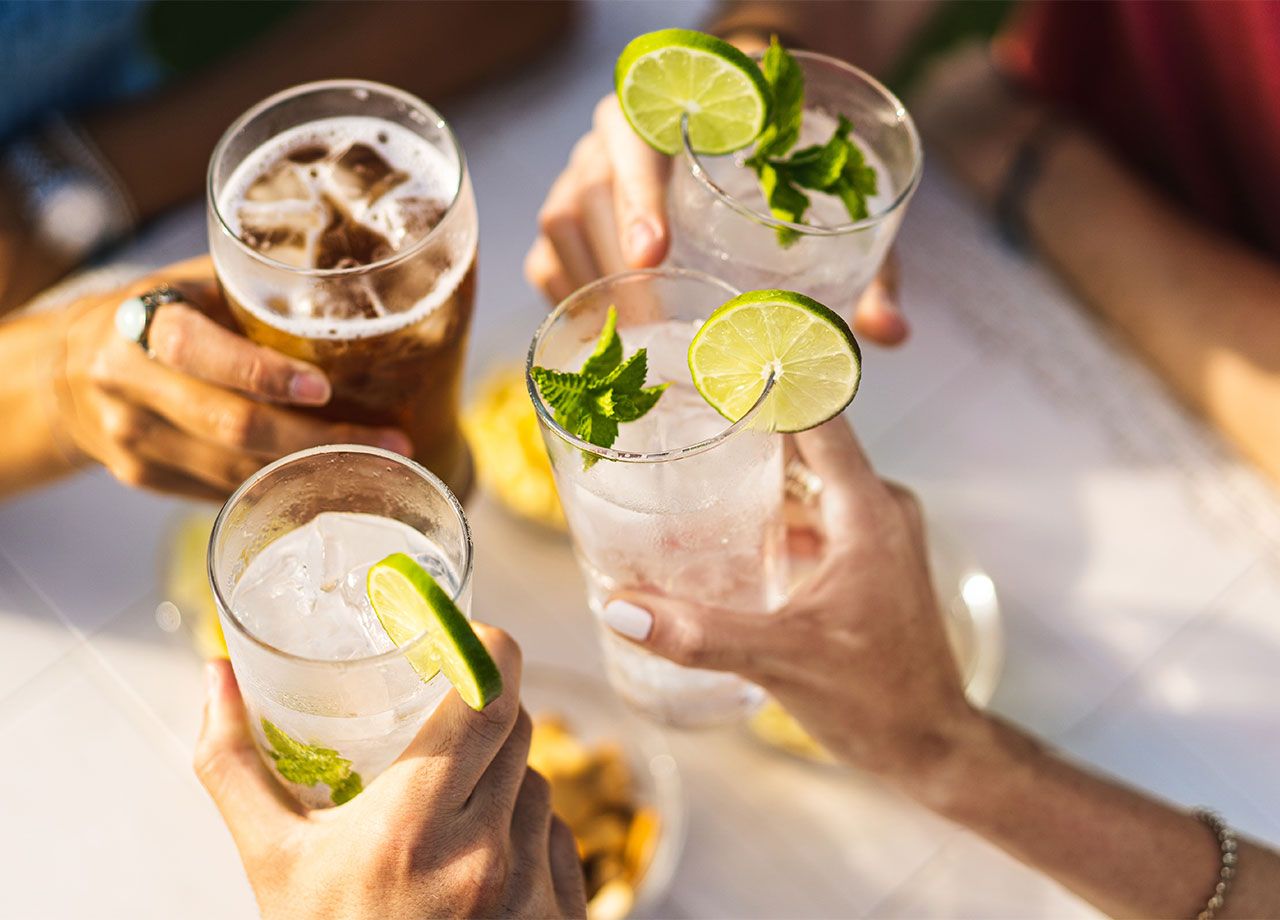
Alcohol
Alcohol contains sugar, and sugar is a simple carbohydrate that breaks down collagen in the elastin in the skin. Alcohol is also dehydrating and can make dry skin look and feel more parched. Enjoying the occasional drink, if you drink alcohol, is one thing, but drinking daily can be a strain on both your body and your skin.
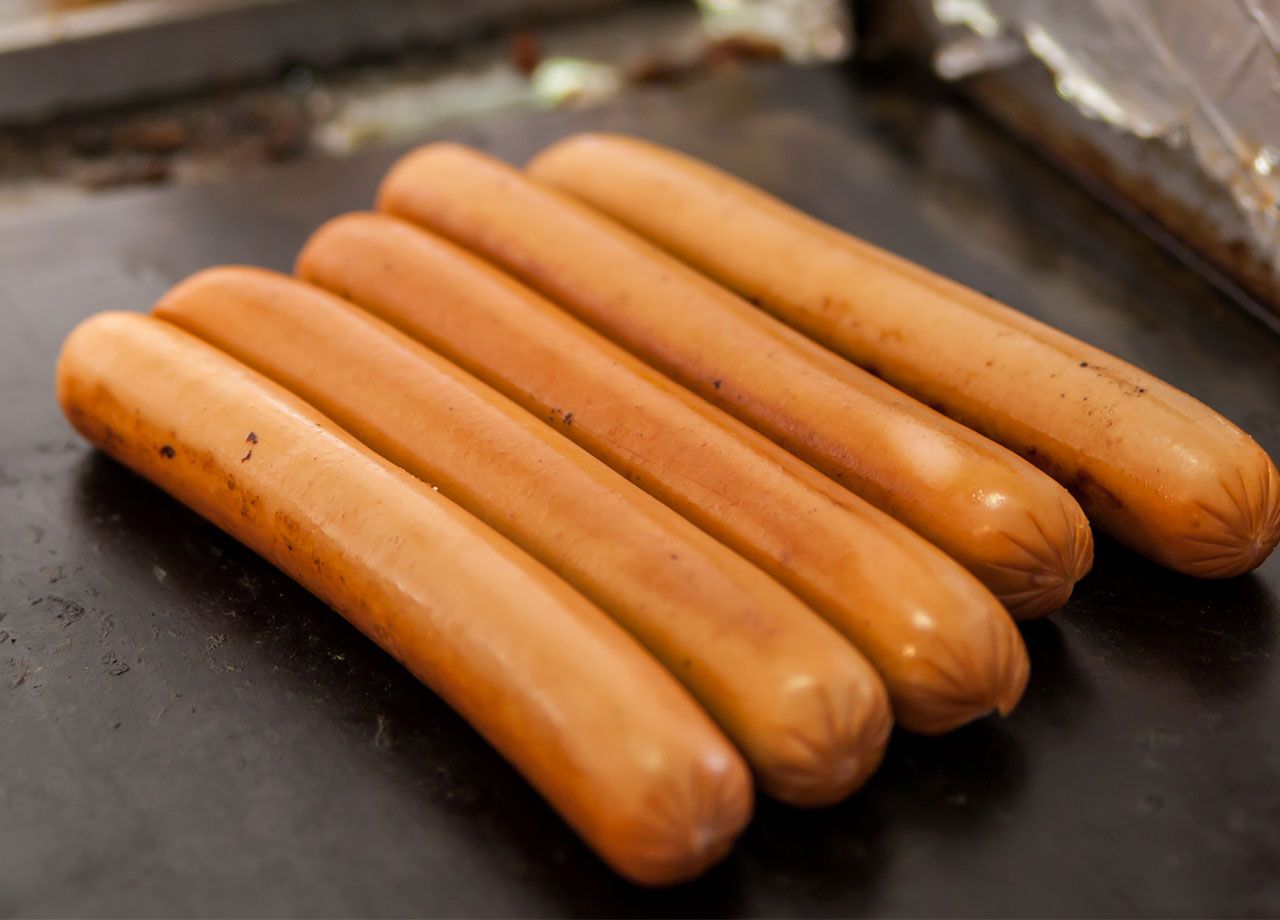
Hot Dogs
Hot dogs and other processed meats, including bacon and beef jerky, are high in sodium, which is dehydrating, and can contain nitrates and saturated fats that lead to inflammation. Inflammation has been linked to skin clarity, as well as specific skin conditions like eczema and acne. The occasional hot dog is fine — but keeping this food to a minimum in your diet can help your skin.
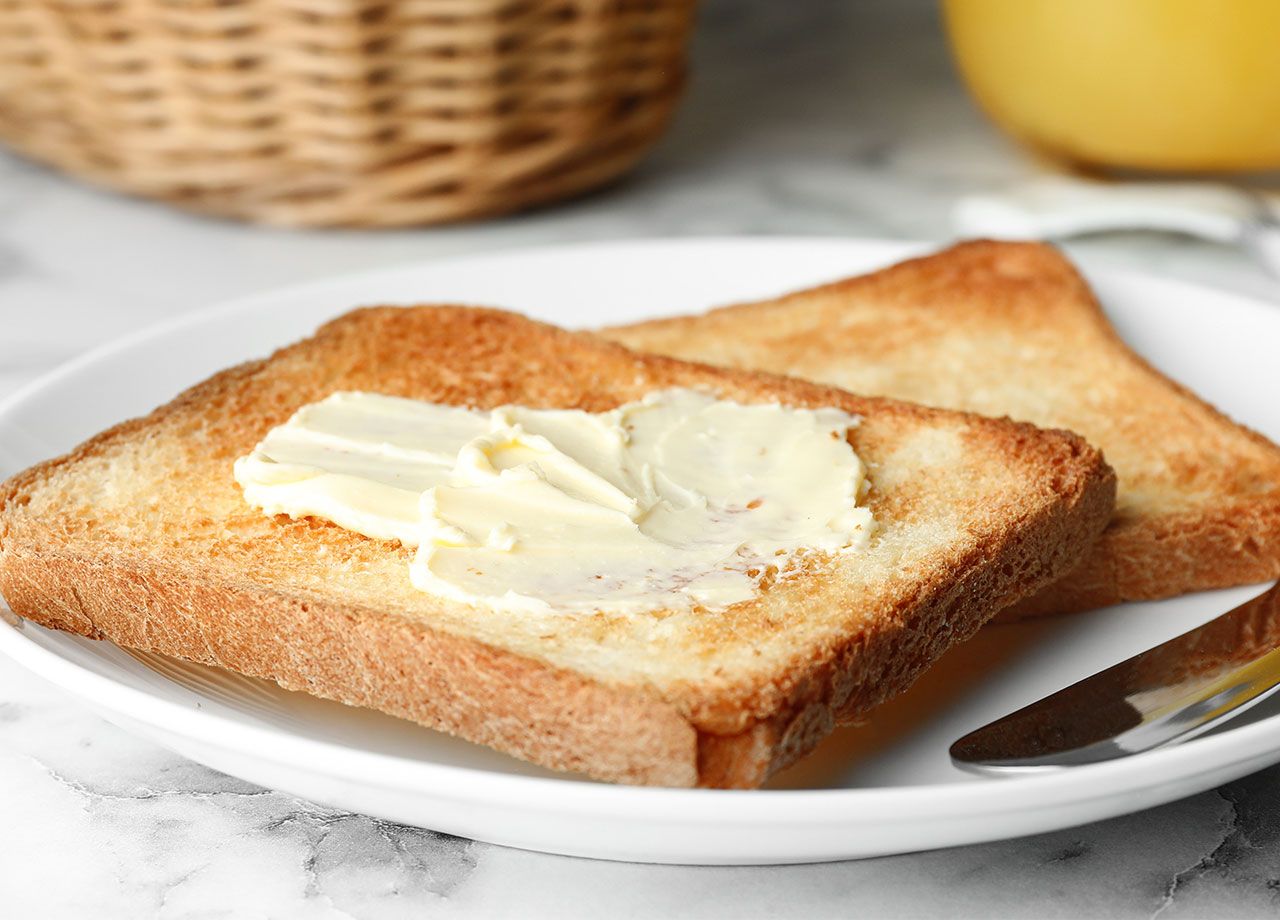
Margarine
We’ve only recently stopped demonizing butter, but for years butter and margarine were spoken about interchangeably. In fact, margarine is different because it’s often a source of trans fats from partially hydrogenated oils. Trans fats are linked to inflammation and diseases such as heart disease, and they’re also known to compromise the skin barrier. Switch to butter and plant-based oils like olive, sunflower, and avocado oils instead.

Candy and Sweets
Life is better with a cookie or a little chocolate. You don’t have to give up all desserts all the time, but minimizing how much sugar you eat can help retain more collagen and elastin. Eating sugar causes a reaction in the body called glycation, which is damaging to collagen and elastin fibers. Sugar also contributes to inflammation and high oxidative stress in the body.















